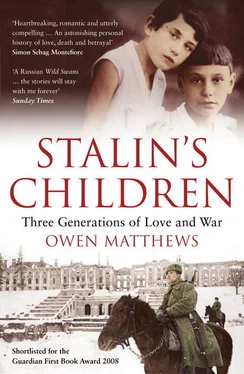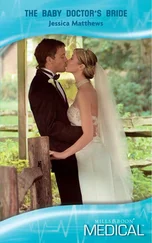My father began visiting Russia regularly again in December 1988, thanks to Mikhail Gorbachev’s Perestroika. He found late Soviet Moscow outwardly the same as the city he had known, but on his first trolleybus ride he noticed no KGB cars, no goons. For the first time, my father felt free on the streets of the city, anonymous at last.
Three years later, and Communism had collapsed in Eastern Europe. I spent the summer vacation of 1991 travelling there with my girlfriend Louise. By coincidence, we arrived in Leningrad on the evening of 19 August 1991 – the eve of the attempted putsch by Party hardliners against Gorbachev which marked the final death-twitch of the Communist Party of the Soviet Union. We woke to see the grim televised face of General Samsonov, head of the Leningrad garrison, warning citizens that gatherings of more than three people were illegal. A day later, and I stood on a balcony of the old Winter Palace and saw Palace Square filled with people, a rolling sea of faces and placards. Near St Isaac’s Square we helped students build barricades across the street out of benches and steel rods. The following day, Nevsky Prospect was filled as far as the eye could see in both directions with half a million people protesting against the system which had shaped almost every aspect of their lives for three generations. The slogans on homemade placards carried by the demonstrators were permutations of the words ‘freedom’ and ‘democracy’. The same day in Moscow, Boris Yeltsin emerged from the White House – the seat of the government of the Russian Federated Socialist Republic – and stood on a tank to address the crowds who had gathered to defend the building against the forces of reaction. It was an iconic moment, and though we in Leningrad didn’t see it because State TV was in the hands of the putschists, it marked the end of seventy-four years of Communist rule. The coup collapsed that evening after an abortive attempt by troops loyal to the KGB to storm the White House.
In a mysterious way vast gatherings of people take on a collective personality of their own, and as I perceived it the animating force of that great St Petersburg crowd was an overwhelming sense of righteousness, a feeling that history was on our side. There was a rather naïvely Soviet sense of the invincibility of reason – that for once life was uncomplicated, we were right, and Communism was wrong. I felt an intense happiness that day. Perhaps, I thought, all the evil of the country, the poison which had tainted Russia, was finally being exorcised by these hundreds of thousands of people who had come out on to the streets to demand the end of a system which had killed millions in the name of a shining future which never arrived. In later years, most of the people who demonstrated on those August days were to be bitterly disappointed by the fruits of democracy. But for many of my parents’ generation – at least for those, like Lenina, who suffered under Stalin – the fall of the Soviet system would always remain something deeply miraculous. An old friend sent a postcard to my mother. ‘ Neuzheli dozhili?’ she wrote, in the wonderfully terse Russian phrase which means, ‘Can it be that we have lived to see this day?’
Oddly, my mother seemed rather unmoved by the upheavals of that autumn, which began with the victory for Yeltsin’s democrats and ended in Gorbachev’s resignation on Christmas Day. Russia was, by then, a place of the past for her; with characteristic wilfulness she’d emotionally drawn a line across her old life and become something new. She was pleased, of course, and saw it as a victory for the dissident movement to which she had, in small part, contributed. She says now that she saw the whole collapse of the Soviet Union from her ‘glorious isolation’ in London; she felt no great surge of emotion at the news. But there was one moment, I think, which had resonance for her: the night soon after the coup’s collapse when a roaring crowd gathered outside the old KGB headquarters on Lubyanka Square, shouting for revenge for the KGB’s support of the reactionaries. A steel cable was put around the neck of the sinister, elongated statue of Felix Dzerzhinsky which stood on a plinth in the centre of the square, and a crane wrenched Iron Felix into the air, where he swung above the crowd as though lynched. She’d always believed that Soviet power would collapse in her lifetime, she said, but that was the moment she really believed it had finally happened.
A year later, in 1992, my father pushed open the doors of the Lubyanka on his way to an appointment with the KGB’s newly formed public relations department. Alexei Kondaurov sat in a plush office overlooking the courtyard where prisoners had once been executed. The KGB – or the FSK, as it was known in the early Yeltsin years – were interested in ‘building bridges’ with Western sovietologists, Kondaurov gushed as Mervyn sipped lemon tea. He even asked Mervyn to write an article on how he researched the Soviet Union from abroad for the FSK’s new magazine. My father was more interested in contacting his old would-be controller, Alexei Suntsov. The FSK man made friendly noises, but nothing came of it.
We had more luck in 1998, when I called the press office of the Russian Foreign Intelligence Service on my father’s behalf. I chatted to General Yury Kobaladze, their smooth press flack, and took him to an expensive lunch among the expat dealmakers in Moscow’s best French restaurant, Le Gastronome. Kobaladze revealed that Suntsov had died, but that his widow was still alive.
We found Inna Vadimovna Suntsova through Valery Velichko, head of the KGB veterans’ club. In the club’s offices behind Okyabrskaya Metro he was introduced to a plump, seventy-year-old woman with a pleasant face. She and my father shook hands warily. Neither recognized the other, though they had met twice, once in 1959 at the Ararat no, corrected Suntsova, the Budapest, restaurant. They’d also gone in Alexei’s car up to the Lenin Hills to see Moscow by night.
Suntsova rummaged in her bag and brought out a picture of Alexei in uniform, which came as a shock to Mervyn, even though he had known that he was a serving KGB officer.
‘I know that he was bitterly disappointed in you, and complained,’ Inna told my father. ‘’’Matthews, the nasty boy, he let me down, after all I’ve done for him.” When things didn’t work out with you, it definitely had a negative effect on my husband’s position in the service.’
Mervyn didn’t ask who it was that had blocked his marriage. He doubted it was Alexei, and doubted Inna would know. She seemed surprised when Mervyn told her the story of his battle. Inna gave Mervyn a photo, after some hesitation, of Alexei in civilian clothes.
Mervyn’s oldest Russian friend, the KGB man Vadim Popov, had disappeared. Mervyn tried to look him up at the Lenin Library, but apart from his doctoral thesis there were no other publications, and the Institute of Oriental Studies where he had studied had been amalgamated.
My father did, however, find Igor Vail – the graduate student who had been used by the KGB to entrap Mervyn – by the simple expedient of looking in the Moscow phone book. It turned out that Vail had been waiting thirty years to apologize for the red sweater incident. He had been summoned by the Lubyanka on the fateful morning, he told my father, and threatened for two hours. They had been bugging Mervyn’s room, and had recorded compromising things Igor had said when he had visited Mervyn. Igor would be expelled from the university if he did not cooperate in the entrapment; he had had little choice. Mervyn gracefully forgave him. ‘That was a different life, and a different world,’ he told Vail. ‘It’s all behind us now.’
My father and I saw each other in Moscow, off and on, throughout the nineties. The meetings were rarely happy. My father certainly disapproved of my dubiously bohemian lifestyle. I, in turn, regarded him as a dour spoilsport. Anger is always so much less complicated than love, and for large chunks of my adult life I chose, for no reason I can readily identify, to be angry with my father. Angry for imagined (and real) slights during adolescence, angry at his lack of imagination and his refusal to bankroll me while I indulged mine. I think he found me spoiled, and ungrateful. ‘You’ve had so many advantages, Owen,’ he would scold me when I was a child. ‘SO many advantages.’
Читать дальше











